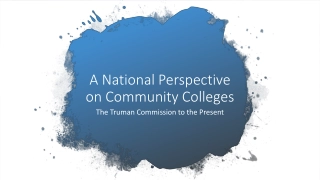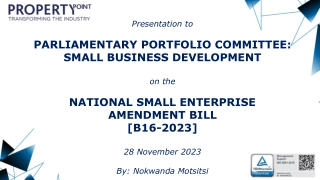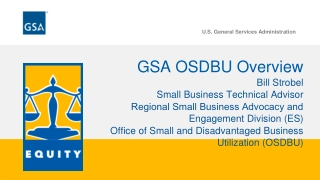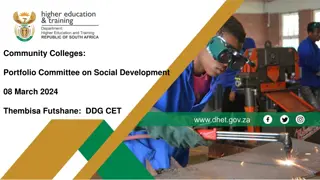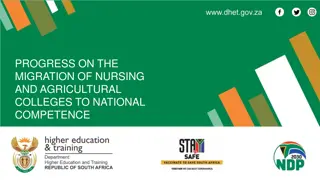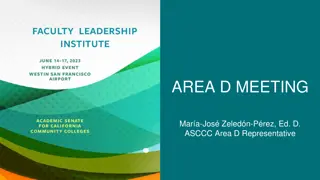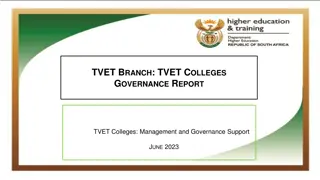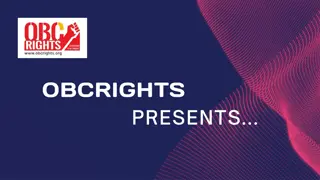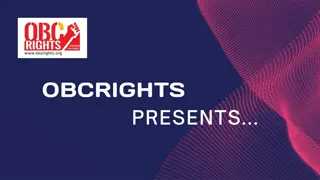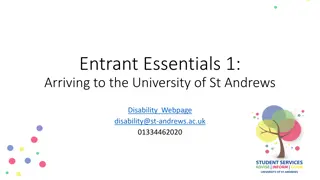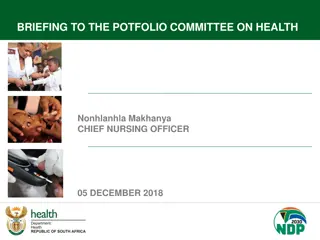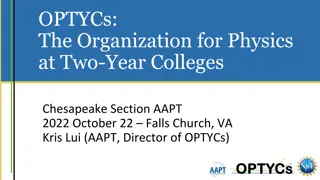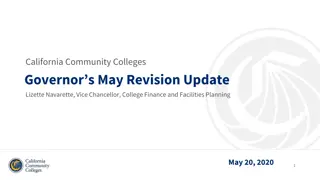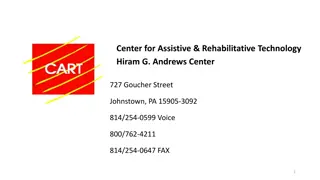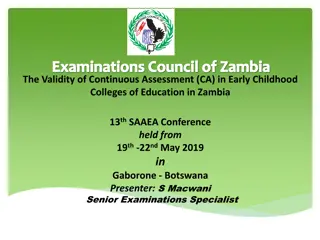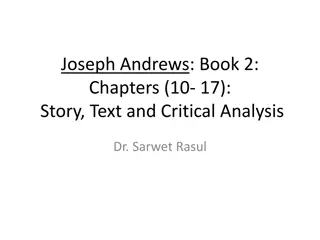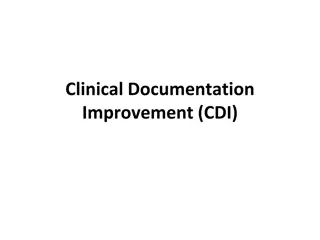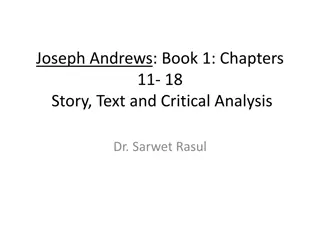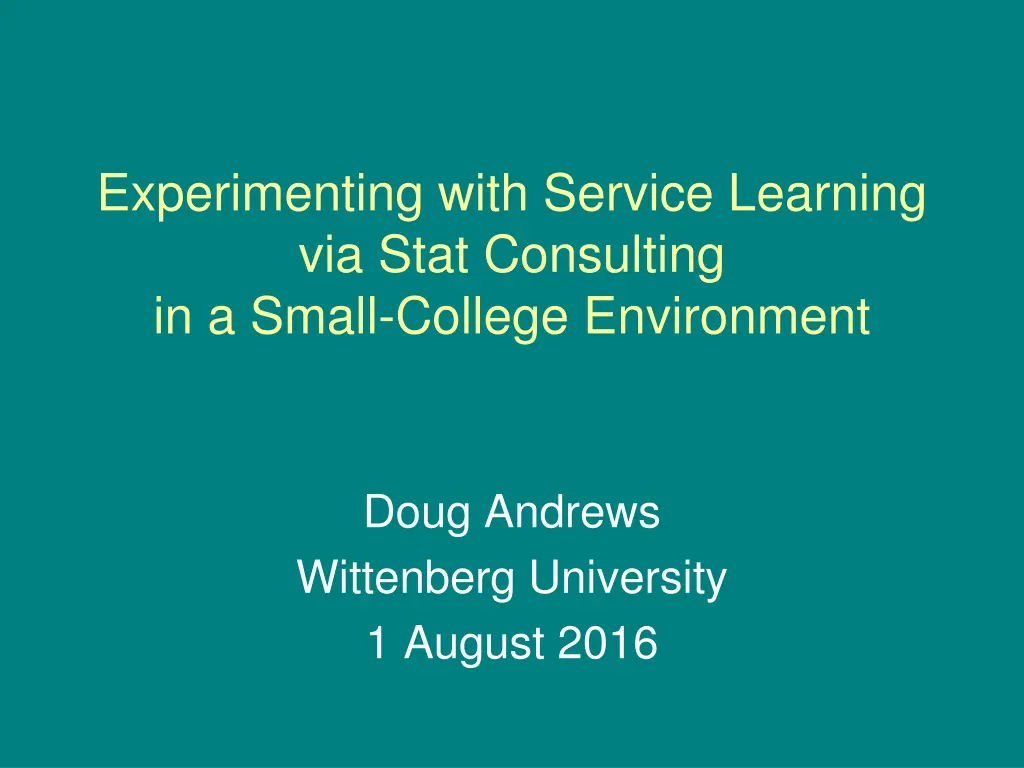
Stat Consulting and Service Learning in Small College Environment
Explore the benefits of service learning and stat consulting in a small college setting at Wittenberg University, highlighting projects and programs related to undergraduate service learning and statistical consulting. Learn about the stat minor and stat track offerings, as well as the department's curriculum and capstone opportunities.
Download Presentation

Please find below an Image/Link to download the presentation.
The content on the website is provided AS IS for your information and personal use only. It may not be sold, licensed, or shared on other websites without obtaining consent from the author. If you encounter any issues during the download, it is possible that the publisher has removed the file from their server.
You are allowed to download the files provided on this website for personal or commercial use, subject to the condition that they are used lawfully. All files are the property of their respective owners.
The content on the website is provided AS IS for your information and personal use only. It may not be sold, licensed, or shared on other websites without obtaining consent from the author.
E N D
Presentation Transcript
Experimenting with Service Learning via Stat Consulting in a Small-College Environment Doug Andrews Wittenberg University 1 August 2016
The Point of these Remarks Portray the small college environment as ideal for curricular experimentation Encourage experimentation with service learning and stat consulting Share examples of undergrad service learning / stat consulting projects (Bonus: stat minor and stat track at Witt)
My Environment: Wittenberg U Liberal arts college with ~1800 students Almost all undergrad, 18-22 years old Springfield, Ohio 15-week semesters
My Environment: Department Major programs: MATH, COMP Minor programs: MATH, COMP, STAT Faculty: 3 math, 2 comp, 1 stat 2 tracks on the math major: Math Stat ~ 2 stat minors, 2 stat trackers per year
My Environment: Stat Minor Intro Stat 2 of : Stat Modeling Stat Design MathStats Probability Calculus (only as prereq to prob)
My Environment: Stat Track Math Major Core: calc I, calc II, linear alg, intro to proofs, comp prog, data analysis Stat Track Requirements: probability, 2 of {stat modeling, stat design, mathstats} 2 electives Senior Capstone: senior seminar, thesis, internship, independent study
My Environment: Stat Track Math Major Core: calc I, calc II, linear alg, intro to proofs, comp prog, data analysis Stat Track Requirements: probability, 2 of {stat modeling, stat design, mathstats} 2 electives Senior Capstone: senior seminar, thesis, internship, independent study
Consulting as Capstone In stat consulating, students are engaged in all phases of typical stat work: Collaborating with client to assess needs Designing a data-based study Collecting data Creating and cleaning a usable data file Analyzing the data Preparing reports and presentations
Consulting as Capstone The process seems more meaningful to students when they re doing it for an actual client with specific needs Students see how everything they ve learned fits into a broader context of professional work More accessible than honors theses and research projects, for common students
Examples: Internal Clients Client: Molly Hopkins, Witt athletic trainer Student: Carrie Kubasta Project: Analyze how the trainers allocate their time and resources, and detail any trends in the number, body site, and type of injuries for different sports
Examples: Internal Clients Client: Ken Benne, Witt director of admissions Students: Juliette Gordon, Paul Hurd Project: Develop a system for using all our known information on prospective students to rate their likelihood of applying, and another system for using all our known information on accepted students to rate their likelihood of matriculating
Examples: Internal Clients Client: Sarah Fortner, Witt geology prof Students: Becca Agnor, Rachel Ross Project: Compare the effects of different farming practices on chemical run-off into surface water
Examples: Internal Clients Client: Garnett Purnell, Witt athletic director Students: Becca Agnor, Rachel Ross Project: Compare the GPA s of athletes in- season and out-of-season, partly to assess the impact of the institution s academic support systems for student-athletes
Examples: External Clients Client: Scott Dawson, Project Jericho director Students: Sarah Braden, Sarah Kendrick, Kate Snead Project: Assess the impact of after-school arts enrichment programs for at-risk middle- school youth on social and academic outcomes
Examples: External Clients Client: Laurel Finch, neuromuscular massage therapist Students: Andy Bates, Brett Herleikson, Troy Winner Project: Determine how well/poorly the inter-incisor opening can be used as a proxy for detecting substantial jaw dysfunctions, after controlling for sex, age, posture while measuring, and several other factors
Examples: External Clients Client: Joseph Monnin, county judge Student: Kim Mowrey Project: Assess the impact of the judge s court-mandated programs on recidivism rates for juvenile offenders, and develop a system to profile which programs are more likely to succeed with which juveniles, depending on various characteristics
Examples: External Clients Client: Meghan White, Promise Neighborhood liaison Student: Kevin Egan Project: Assess the impact of after-school and summer programs for impoverished K-3 kids on learning outcomes, as measured by gains on various statewide proficiency exams
Small-College Advantage Typically fewer barriers to inter- departmental work Lack of formality facilitates easier collaboration with internal clients Typically fewer formal restrictions on work with external agents Lone statisticians often have complete autonomy in pedagogy and curriculum
The Point of these Remarks Portray the small college environment as ideal for curricular experimentation Encourage experimentation with service learning and stat consulting Share examples of undergrad service learning / stat consulting projects (Bonus: stat minor and stat track at Witt)
Contact Doug Andrews Dept of Math and Comp Sci Wittenberg U Springfield, OH 45501 DAndrews@Wittenberg.Edu (937) 327-7863
Stat Consulting as Service Learning Most of my Service Learning efforts have been in the context of our required senior capstone, in which our senior math majors carry out projects in which they bring to bear what they ve learned in their personal version of our math major. For students on the stat track of our math major, serving as a stat consultant is one very natural capstone experience. I ve also had stat trackers carry out stat research projects and honors theses for their capstones, but stat consulting capstones are often more accessible for students who aren t necessarily honors-caliber. Formally, students register for this kind of work sometimes as an internship, other times as an independent study, and occasionally as a separate stat-specific section of our usual math senior seminar course. In such consulting projects, students get to see most of the phases of typical stat work collaborating with a client to help assess needs, designing a data-based study, collecting data, creating and cleaning a usable data file, analyzing the data, and preparing reports and presentations. Although in essentially all of my courses I feature semester-long projects, in which students already get practice at all of these phases in projects that they themselves dream up, the process seems much more real to them when they re doing it for an actual client whose specific needs and problems they need to address. They also see how everything they ve learned fits into a broader context of professional work. This kind of stat consulting work certainly isn t possible only at small colleges. Indeed, many large-university graduate stat departments have consulting divisions that serve (paid) clients. And several have StatCom programs (originated at Purdue) in which teams of stat grad students donate service to clients in the broader community. That was actually my inspiration for trying it at an undergrad level. But because most stat analysis in the real world isn t heavy methodological work often little more involved than some appropriate data visualization and some simple effect estimates and inferences much of the analysis can be done easily by undergrad stat students. In 2010 I gave a presentation in a JSM stat education session on various models for consulting capstone experiences for students, including experiences even in the context of an intro course for non-majors! (I d be happy to share upon request the PowerPoint of that presentation as well as an annotated bibliography which includes an excellent 2007 JSE paper by kb!) So it certainly can be done at smaller schools. Moreover, there are several reasons why it can be even more feasible to experiment like this at small colleges than at large universities. At smaller institutions there typically are fewer barriers to inter-departmental work, and this lack of formality makes it easier to set up work with internal clients (i.e., at one s own college). And at private colleges there seem to be fewer restrictions on doing such work with external clients (i.e., in the broader community). Smaller colleges also often have at most one statistician, and such lone statisticians can usually just make up what they think is appropriate in the stat curriculum without the need to consult one s departmental colleagues, let alone a formal curriculum committee. I ve had students serve a variety of internal and external clients. Because we typically offer this service pro bono, most potential clients jump at the chance give a bit of their time and data in return for free technical help.

